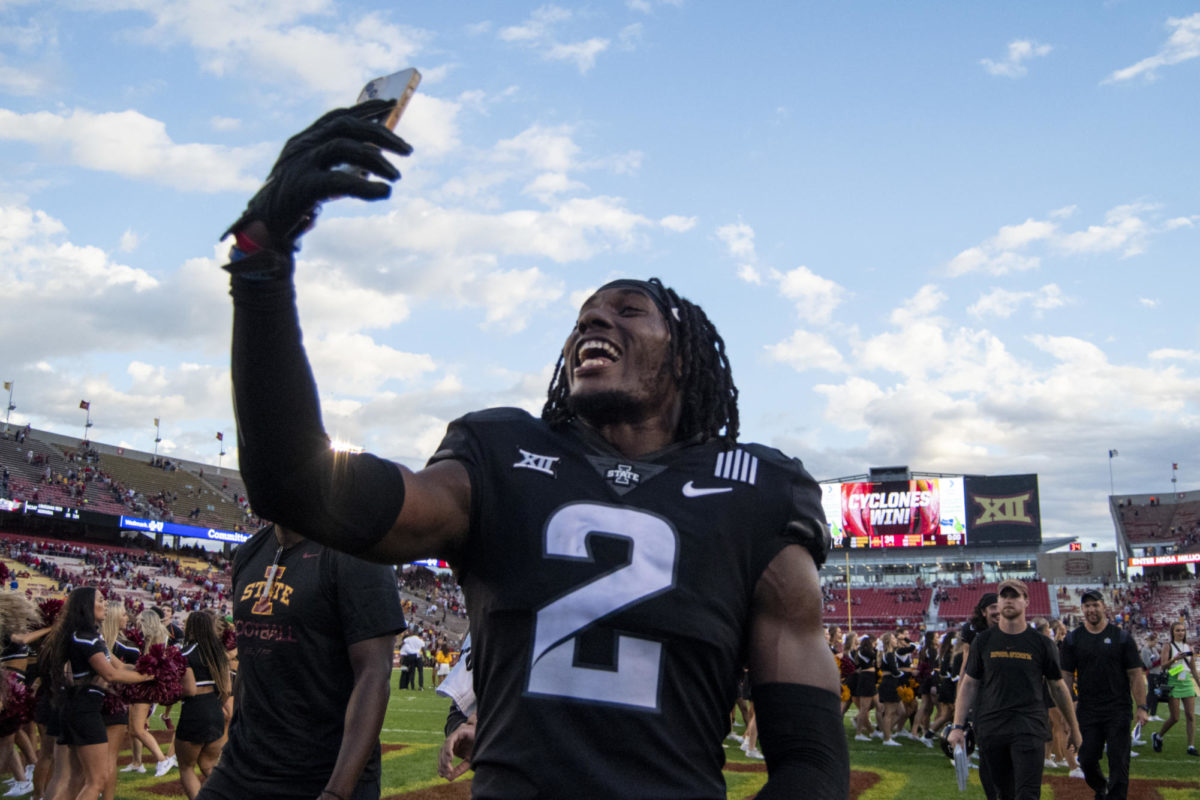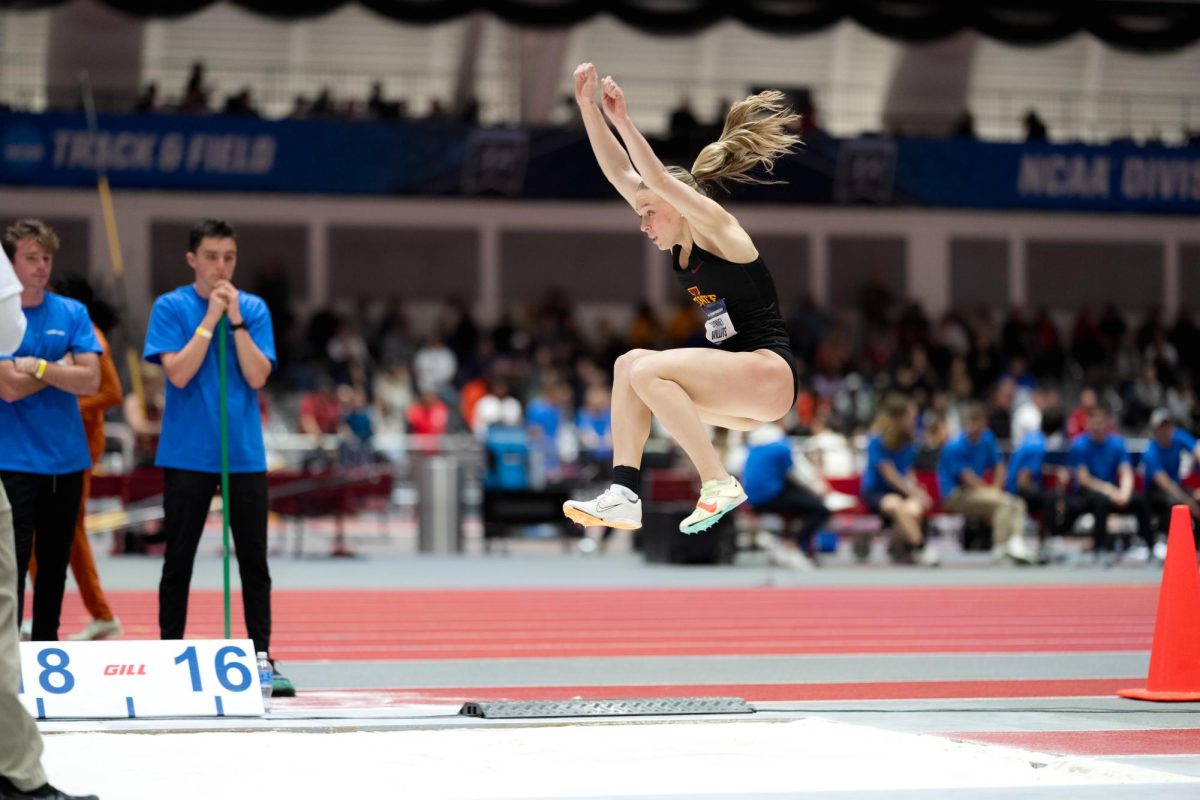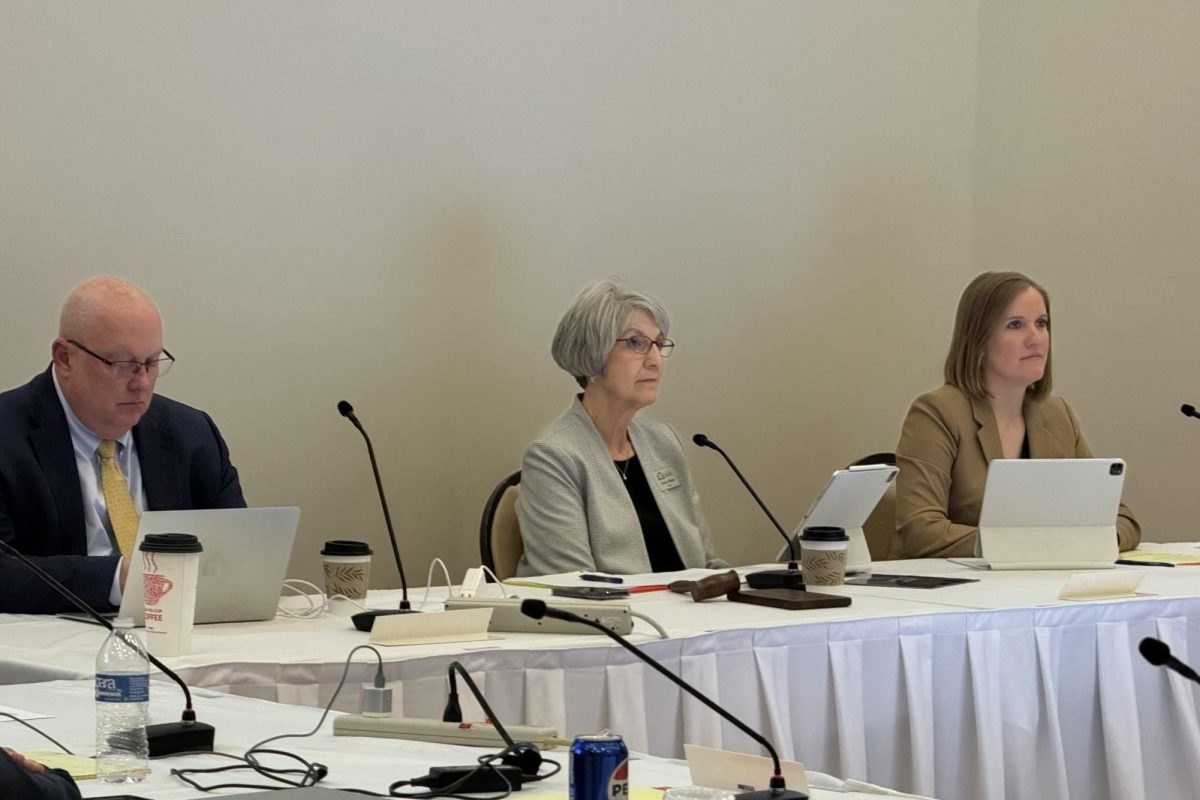Confusion surrounds Music Fest ’96
April 3, 1996
The recent announcement that no national band will play at Music Fest ’96 has created many questions about why no band was found and when those involved knew.
Students left for spring break on March 9 with the promise by Adam Gold, director of Music Fest ’96 and Government of the Student Body president-elect, that the national band for the concert would be announced when they returned. Spring break came and went, but still no band was announced.
Two more weeks passed and there was still no word about who the headliner would be.
Thursday, March 27, the day after GSB elections, it was announced that no national band would be playing at Music Fest ’96.
The reason given by the Veishea officials and Gold was that Fish Bone, the band contacted to play, did not have a strong enough following in the Midwest to warrant spending $15,000 of student money to book them.
Veishea co-chairs Mark Lee and Shellee Novotny said the Veishea committee decided that with the added expense of security, safety, stage, lights and other costs that Veishea would have to spend on the concert, it would not be in the students’ best interest to spend the money on Fish Bone.
Lee said the decision was finally made to not have a national band on March 27 at a Veishea advisory committee meeting because “we wanted a nationally-known act and did not think we had one. Plus we were running out of time.”
Although the final decision was made by the Veishea advisory committee March 27, the Veishea executive committee had met and voted not to bring Fish Bone about a week earlier on March 21, Lee and Novotny said.
Fish Bone had been recommended to Veishea by Music Fest entertainment committee adviser David Schooff. Although Fish Bone’s initial rejection came on March 21, Lee said he did not inform Schooff of that decision, with the assumption that Schooff and Gold were also looking for other possible headliners.
But by the time Schooff found out about the rejection on March 26, he did not continue to look for other bands because by then he knew it was “too late.”
Schooff said Veishea had never given them a deadline about when a band had to be chosen.
Lee said the Veishea executive committee had to have a band who would agree to come for $15,000 or less by March 25. But he said Gold and Schooff were not informed about that deadline.
On top that, Novotny and Lee said they did not inform Gold of Fish Bone’s rejection until after the advisory committee finalized the decision not to have a national act on March 27.
Although the Music Fest director was not immediately informed of the Veishea executive committee’s rejection of Fish Bone, others apparently were.
Gregory Parks, director of the Maintenance Shop, said he was informed on March 25 that there would be no headliner band by Joe Sprenger, a member of Veishea’s entertainment committee. Parks said Sprenger met with him to find other smaller bands for the concert.
Alex Panchula, the student chair of the Committee on Lectures, said the lecture committee was also informed on March 25 that no headliner band would be coming, but he said the committee was asked not to tell anyone.
Lee said he did not know how Sprenger knew that no headliner band was coming.
Novotny said they did not announce the fathat there was no headliner because they first wanted to meet with the Veishea Advisory Committee. She said they first informed the public in an interview with the Daily on March 28.
Gold said said he had assumed there would be no headliner concert before March 27, but he was not told until the day of GSB elections.
While Gold was running for GSB president, he repeatedly listed Music Fest ’96 as an example of one of the student activities he would bring to campus as president.
After it was announced Music Fest ’96 would include no national act, Gold tried to explain the reasons why.
Gold said the biggest problem with booking a headline band was the time factor.
“We had a lot of trouble time wise. We did come up a little short, but we really tried to make this happen,” Gold said.
On Feb. 21, GSB passed a bill to reserve $15,000 from a special funds account in order to book a headline band for Music Fest ’96. Gold had one month to find a national band to play.
Several student groups on campus said the problem with finding a national band may have been averted if they were asked to help.
Parks said he was disappointed that no band was found, but he was also disappointed that other groups on campus were not asked for their help in planning the concert.
“As a student, I was hoping that it would happen, and that it would go over well,” Parks said. “As a member of one of the student groups on campus who has experience with this type of thing, I tend to think it was poor planning and an incomplete use of resources.”
He said the Maintenance Shop was not actively sought out for its help or expertise in booking bands until Sprenger contacted him March 25 with the information that there would be no national band.
Parks said he had contacted Gold by e-mail before spring break to express some of his concerns about the concert. At the time Gold invited Parks to meet with him to discuss his concerns, but Parks did not go and Gold never followed up.
Panchula said the committee on lectures was not contacted either to help with the event, even though the committee has experience working with national acts like Henry Rollins.
“GSB has a tendency to bite their own tails. They don’t use the resources they have available,” Panchula said.
Panchula said it is very hard to book national bands, and GSB should not have announced it was getting a band until it had one.
“To project the fact that you have a large band before you have that large band is irresponsible and misleading to the students,” he said.
Gold said he never spoke with Parks or Panchula and never asked the organizations for help in planning the event because he was confident of the person he had handling the booking.
“None of these groups were contacted because we were very sure of who was doing it at the time. I’m sorry if I ruffled any feathers, but I was confident with who I had,” Gold said.
Gold said he began working with Mark Miller, event coordinator for the Iowa State Center. However, Miller was unable to continue with the project, so Gold then went to a promoter, Ron Lemen from Chicago. He said Lemen specializes in concert festivals and he immediately began to contact possible bands for the concert, including Presidents of the United States of America and Everclear.
Because of the nearness of the event and the fact that the date was not flexible, neither band was able to be booked, Gold said.
Lemen was unable to be contacted for comment.
Schooff said April is a very hard month to schedule any national band.
“We had a specific date for the event and it is almost impossible to find a band who is able to play on that day,” Schooff said.









